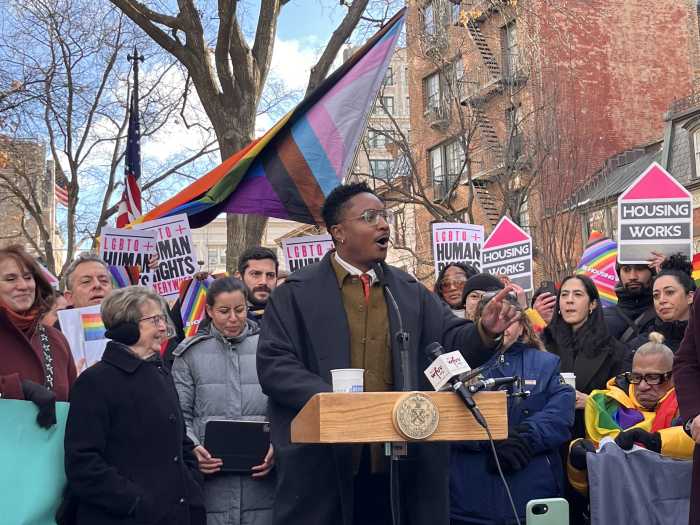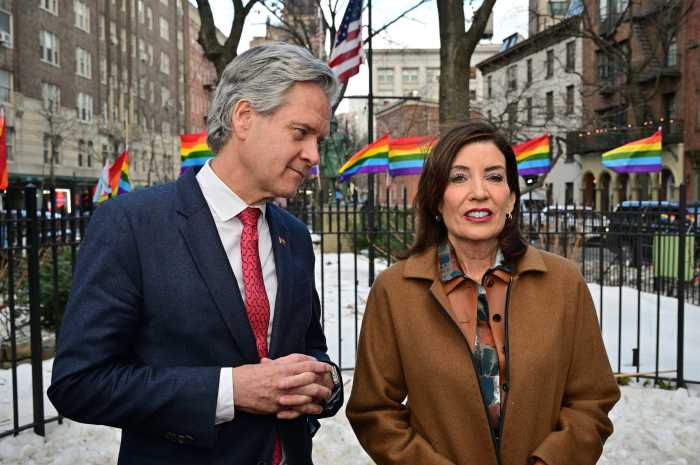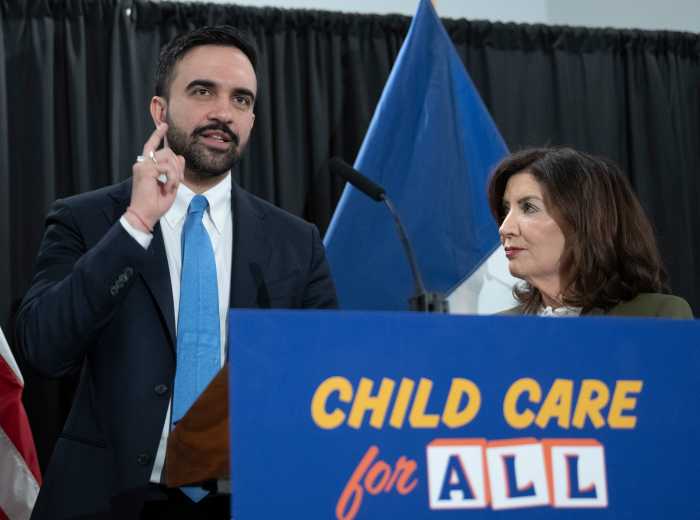One day in 2009, Matthew Kuriloff paid a visit to East End Disability Associates, which provides services for individuals with intellectual and developmental disabilities on the east end of Long Island.
Kuriloff, an out gay man, had just moved to the area and wanted to volunteer in the local community. But he didn’t anticipate what would happen next: He was offered a job as a direct support professional, despite having no background or experience in that field.
That moment marked the beginning of a new career for Kuriloff, who once received Direct Support Professional of the Year honors and now serves as associate executive director at East End Disability Associates.
In his leadership capacity, Kuriloff has been an advocate for direct support professionals, who work with individuals with disabilities across all aspects of life, with a goal of helping them to become more integrated in society and work towards increased independence. The work of direct support professionals can entail helping individuals with going to the bathroom, choosing their clothing, or even providing emotional support.
Kuriloff also advocates for the clients of direct support professionals and works to foster a more inclusive environment in an industry where LGBTQ representation is not always prominent.
Right now, though, one of the most urgent issues facing the industry is pay parity, including at the state level in New York. The work of direct support professionals is critical to the stability and well-being of the people they serve, but those workers are often paid subpar wages — especially for individuals who work at non-profits, where the workers are paid less than at government-based institutions. In turn, that has impacted the ability of non-profits to hire and retain workers.
In February, hundreds of disability advocates, including direct support professionals, joined State Senator Patricia Fahy at a rally in Albany to urge the state to implement a 7.78% pay increase for those workers. Manhattan Assemblymember Rebecca Seawright, meanwhile, introduced legislation to provide wage enhancements for direct support professionals.
However, with the state budget now complete, advocates are coming to terms with the realization that they will need to continue fighting for a cost-of-living increase for direct support professionals.
“We had hoped for a 7.8% increase, but we only got 2.8%, which is a disappointment because a lot of people put a lot of thought into determining the need, what the increase should be, and why,” Kuriloff said. “So it’s frustrating because it’s sort of a pattern we see every year. We have to beg for continuation [of funding] in the budget. We ask for what we feel we need and we have to kind of accept the lower number that inevitably comes out.”
Kuriloff compared the annual funding fight to the film “Groundhog Day,” saying it “does not feel like there is a sense that we want to sustain the workforce.”
Desiree Loucks Baer, the chief operating officer of the National Alliance for Direct Support Professionals in New York City, echoed Kuriloff’s frustrations about the enduring fight for pay parity.
“Every year for as long as I’ve been in this field, which is about 40 years, they’ve been looking at bringing up direct support professionals’ salaries to a level that gives them a living wage,” Baer told Gay City News. “When we talk about this, it’s not just salaries; it’s also benefits, so people can stay in this career.”
Baer added: “The reimbursement rates that those private organizations get are significantly lower when it comes to paying staff than state employees, and that has happened for as long as I’ve been in the industry.”
Baer and Kuriloff crossed paths when they both worked on an initiative called Proud and Supported, which involved a multi-year grant from the New York State Developmental Disabilities Planning Council to create training to better serve individuals with intellectual and developmental disabilities who identify as LGBTQ, as well as for families and staff.
Baer and Kuriloff served as trainers for the Proud and Supported team and worked together to develop a curriculum for future trainings.
“Certainly when I started 15-20 years ago, there was really no playbook for how to support somebody who identifies as LGBTQ,” Kuriloff said.
Through that collaborative effort, however, Kuriloff was mindful of the reality that LGBTQ inclusion is a two-way street. While it remains important to equip direct support professionals to work with the LGBTQ community, Kuriloff said there needs to be support for out queer direct support professionals, as well.
“I recognized there is a significant percentage of folks who are direct support professionals that identify as LGBTQ, so part of my experience working on these projects, including Proud and Supported, is to also acknowledge there are people in the workforce, other stakeholders in our world, who identify as LGBTQ and that are deserving of recognition,” he said.
Baer said Proud and Supported’s work is culminating in a forthcoming curriculum that will be released this year.





































